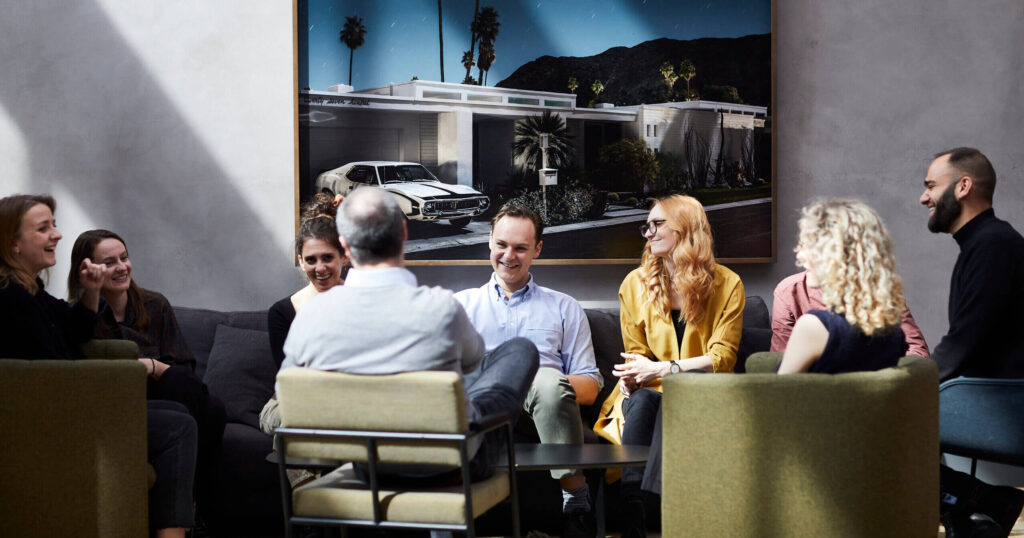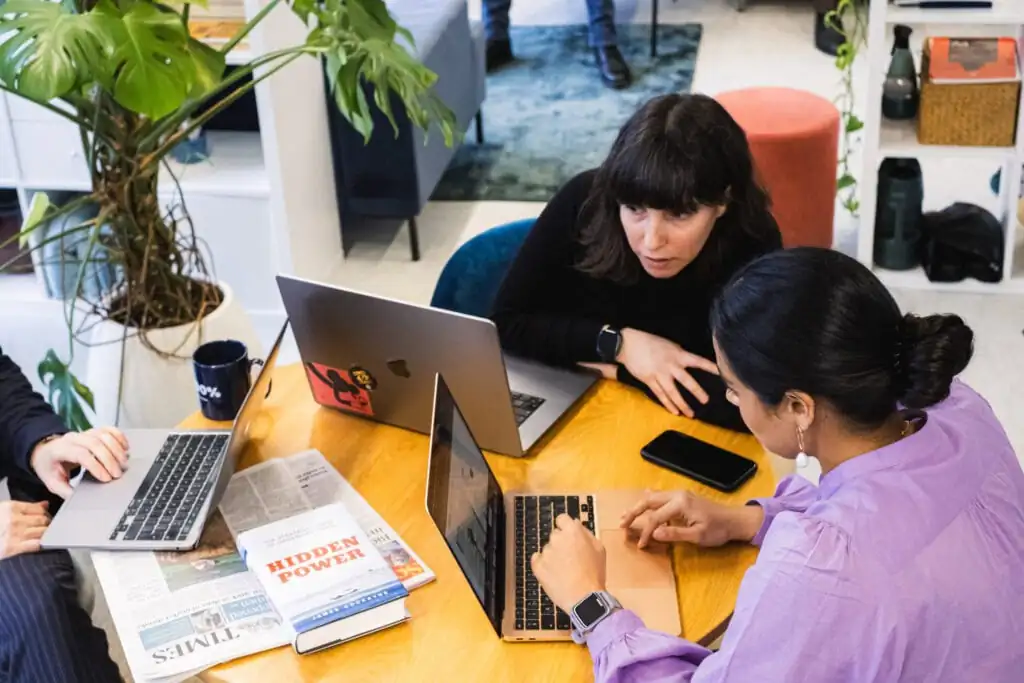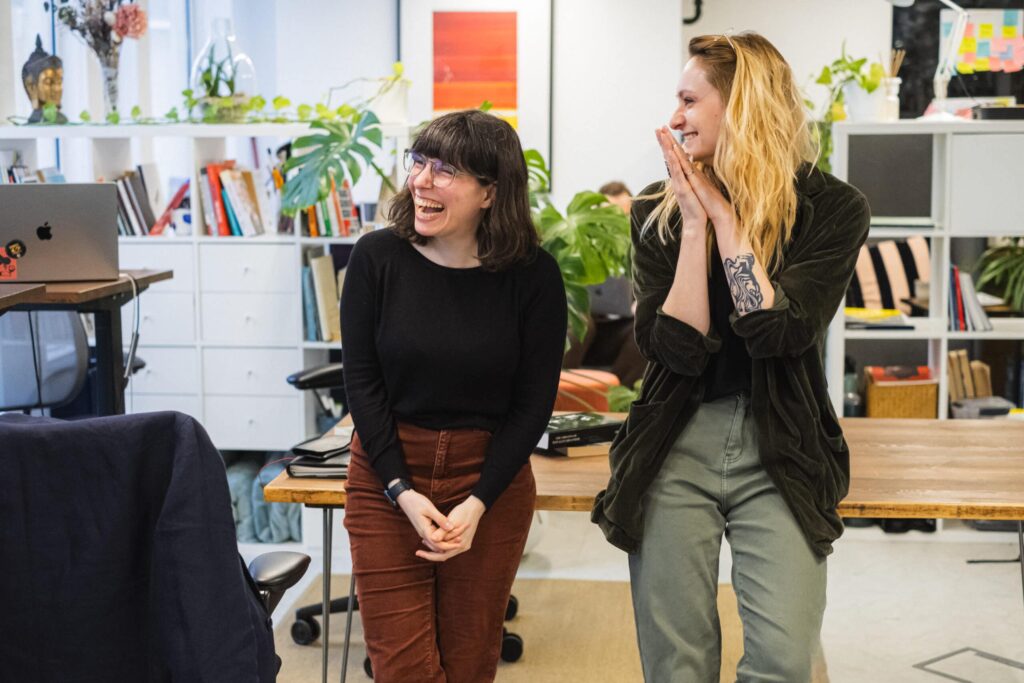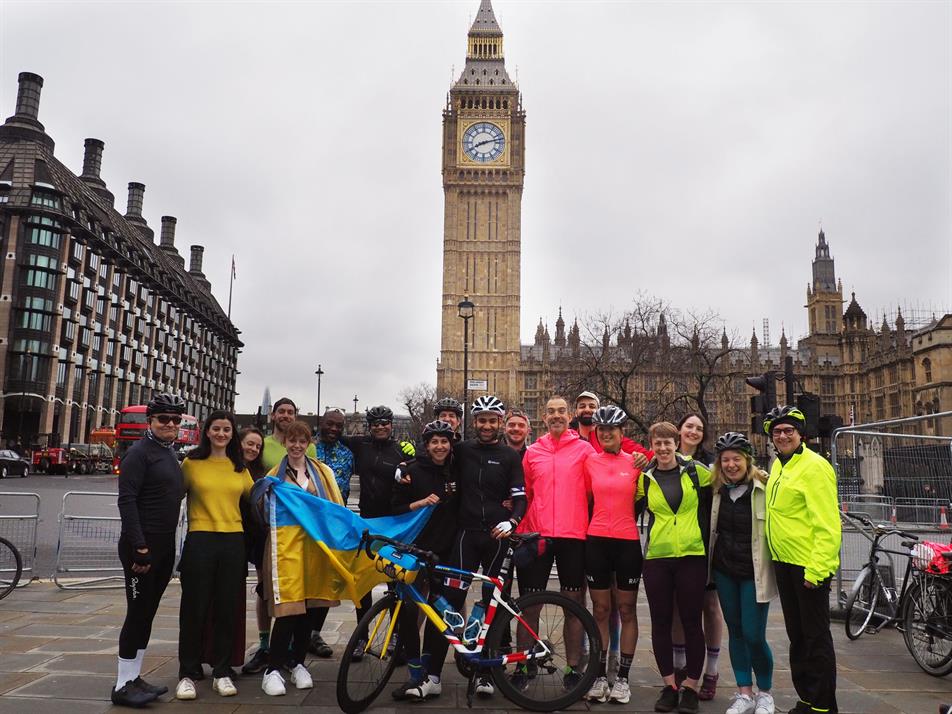“It felt more like psychotherapy than marketing – and I think that’s part of the brand”.
This was one of the comments given when we asked a few policy communications people what they think of us at Cast From Clay.
They were talking about our approach to new business – specifically the conversations we have with potential clients.
I know what they were getting at.
I think about these conversations as more of a dance. You assess for fit, try a one-off dance, and, if that goes well, commit to something more challenging.
Assuming all goes to plan, you have a new dance partner. You spend the following months learning their strengths and weaknesses, likes and dislikes, pushing each other to grow and learn new things.
This initial process needs to be sufficiently streamlined that it doesn’t detract from the point of the discussion (ie, the project – there’s a problem to be fixed after all). But it must be sufficiently long that both parties are able to get enough information to be confident in the decision that we are both right for each other.
We’re trying to answer: Are we right for each other? What is your deeper need? How can we push you further?
In some cases, that takes minutes. In others, it takes weeks.
But it all starts with that initial assessment.
In those moments, we’re trying to answer:
- Are we right for each other?
- What is your deeper need?
- How can we push you further?
Here’s how that works in practice:
1. Are we right for each other?
We have a very specific client set and types of work that we will do. (Find our more on our Work page.)
When you get in touch, we’ll schedule a 15-30 minute call to assess whether you tick those boxes. But the call is also to see whether we are a good fit for what you are looking for: are we the best firm for the job?
During the call, we’ll give you a rough indication of budget and timeline to make sure that these are realistic for you. If we have any immediate concerns, we’ll flag these.
Over the past year we have become much more secure about rejecting work that isn’t right for us, and saying when another firm (or a freelancer) would be better suited.
It can be hard to do – what kind of a consultant rejects work? But it creates better outcomes for everyone involved. Clients get a firm or freelancer that is better suited to the work. And our team has the space to commit fully to projects for which we are the best fit.
If we’re going to walk away, we’ll tell you who we think would be better for the work, and why.
2. What is your deeper need?
The first call will focus on the topline. It won’t go into detail.
The second call will be much more probing. We’ll introduce you to the consultant who will be the lead on our side and your day-to-day contact should the project be commissioned.
Taking 45 minutes to an hour, we’ll want to understand why you are commissioning the work – why this project, why now, and what success looks like for you. We’ll discuss the areas that may be challenging, or that we have concerns about. On the back of this call, we’ll deliver our proposal to you.
If we don’t think it’s the right solution for the problem you’re facing, we will challenge you on your brief.
If we don’t think it’s the right solution for the problem you’re facing, we will challenge you on your brief. We won’t just say yes to fixing a superficial problem (“my website needs to look better so I can engage funders more effectively”) when the problem is much more foundational (“I have no idea how to communicate with my funders because we don’t stand for anything”).
It may not change your mind, which is fine. And you may even change ours.
3. How can we push you further?
We have a financial results meeting every quarter to review our numbers. We have been fortunate to see significant growth each year since the business was founded.
This is great, but it’s not really why we exist.
So, two years ago we married this with a quarterly purpose assessment. The intention is to balance revenue and with the reasons why we do this work. In those purpose assessments, we grade each project we’ve completed in that quarter on a series of metrics. Broadly these equate to the influence, significance, and ambition of the project according to our principles.
There are numerous reasons for doing this, but most relevant here is to incentivise pushing you, our clients and potential clients, further in your ambitions.
What that means in practice – well, it depends. But it will be infused with our purpose and what we stand for, as well as:
- How we think about policy organisations and how they consider strategy;
- Our views on digital maturity, communications models, and storytelling.
For a ‘small c’ conservative organisation, this may mean pushing you to rethink your strategic approach to communications and adopt a more campaigning approach. For an organisation with more advanced communications already, this may mean developing a training series so that your communications team knows how to evaluate the impact of their work.
What we encourage you to do will be based on where we think you are when it comes to communications, and how we can take you to the next level. It will also be based on what we think is politically possible within your organisation. We’ll be aiming for just past your comfort zone.
We’ll be aiming for just past your comfort zone. This requires that you let us lead.
Just like you would with a dance partner, this requires that you let us lead.
If you want to dance but want to retain control, we are not going to be the best fit. A delivery-focused agency will be your best bet.
But if you want us to guide your thinking and push you further, we’re in. And of course, it will still be a team effort.
Congruence matters more than the decision
Ultimately, new business is about information gathering and relationship-building – for both of us.
How congruent we are about the decision is the most important element; congruence in making a decision is far more important than the actual decision itself.





